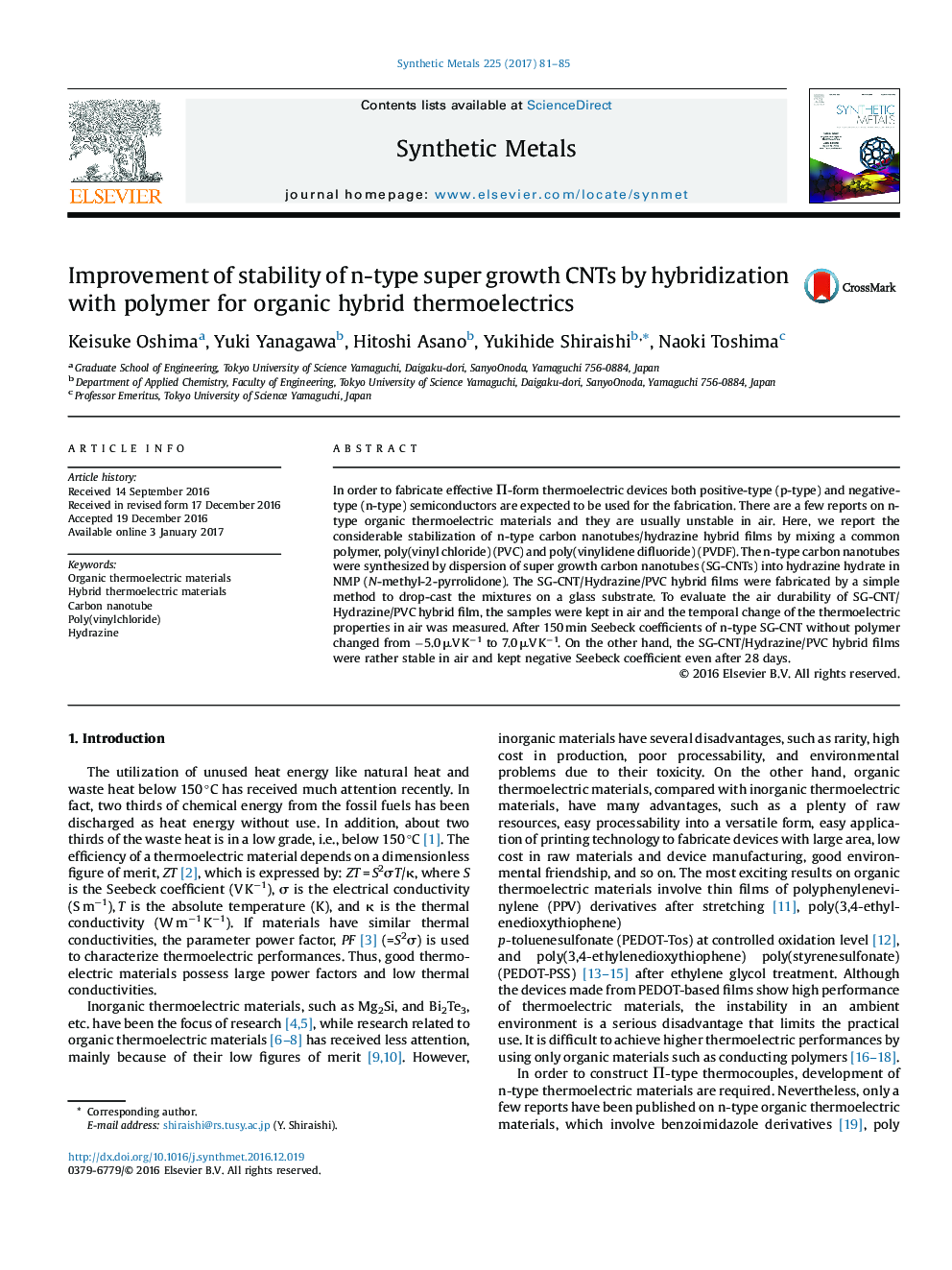| Article ID | Journal | Published Year | Pages | File Type |
|---|---|---|---|---|
| 5435636 | Synthetic Metals | 2017 | 5 Pages |
â¢The SG-CNT Buckypapers and the SG-CNT/Hydrazine/Polymer show good thermoelectric properties.â¢The n-type SG-CNT Buckypapers are easily oxidized by oxygen in air.â¢The CNT/Hydrazine/PVC films are stable in air and kept negative Seebeck coefficient after 28 days.
In order to fabricate effective Î -form thermoelectric devices both positive-type (p-type) and negative-type (n-type) semiconductors are expected to be used for the fabrication. There are a few reports on n-type organic thermoelectric materials and they are usually unstable in air. Here, we report the considerable stabilization of n-type carbon nanotubes/hydrazine hybrid films by mixing a common polymer, poly(vinyl chloride) (PVC) and poly(vinylidene difluoride) (PVDF). The n-type carbon nanotubes were synthesized by dispersion of super growth carbon nanotubes (SG-CNTs) into hydrazine hydrate in NMP (N-methyl-2-pyrrolidone). The SG-CNT/Hydrazine/PVC hybrid films were fabricated by a simple method to drop-cast the mixtures on a glass substrate. To evaluate the air durability of SG-CNT/Hydrazine/PVC hybrid film, the samples were kept in air and the temporal change of the thermoelectric properties in air was measured. After 150 min Seebeck coefficients of n-type SG-CNT without polymer changed from â5.0 μV Kâ1 to 7.0 μV Kâ1. On the other hand, the SG-CNT/Hydrazine/PVC hybrid films were rather stable in air and kept negative Seebeck coefficient even after 28 days.
Graphical abstractDownload high-res image (106KB)Download full-size image
